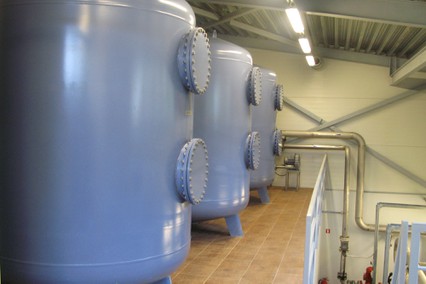Description
Tasks:
1. Designing overall schemes, such as sewer improvement schemes or flood defence programmes, and associated structures, such as pumping stations, pipework and earthworks2. Preparing tender documents as a basis for construction
3. Reviewing technical submissions
4. Liaising with various bodies and individuals, including local authorities, government agencies, clients, contractors, residents, suppliers, technical experts and other consultants
5. Working collaboratively with other businesses
6. Keeping up to date with environmental matters, and being aware of policy and developments in this area
7. Presenting technical data or project results to both technical and non-technical clients and colleagues
8. Monitoring the progress of projects from beginning to end - from the feasibility stage, to design through to construction and handover - or supervising one section of a large project
9. Administering contracts and ensuring that work is completed to deadline
10. Supervising the operation and maintenance of water and sewerage infrastructure
11. Using computer simulations to analyse, for example, potential dam failure
12. Monitoring flood levels at times of high risk
13. Managing staff, including other engineers, technicians and site workers
Key skills for Water Management Engineer:
- Engineering knowledge
- Experience of project management
- Communication and negotiation skills
- Teamwork and people management skills
- Problem-solving ability
- Self-motivation and a proactive approach to work
- Commercial awareness
- An entrepreneurial spirit
- Good time management skills
- A flexible approach to work and a willingness to take on new challenges
Average Salary (2013):
United Kingdom: £24,000-£32,000 per yearUnited States of America: $85,520 per year
Australia: AU$126,050 per year
Qualifications and training required:
Although this area of work is open to all graduates from relevant engineering and sciences courses, a degree in civil engineering may improve your chances. Other degrees that may be useful include: environmental engineering; chemical/process engineering; biochemistry; environmental science (physical); geography (physical); geology; geophysics/geotechnology; mechanical engineering.A foundation degree in an engineering or science subject can lead to employment at technician level. With evidence of further learning and experience, it is possible to upgrade to the incorporated engineer qualification. Some employers may prefer a Masters level degree in engineering. For undergraduate students, an MSc in a specialised area, such as water engineering, hydrology or hydrogeology, may be advantageous.
Relevant vacation work or an industry placement year can improve your chances, along with a demonstrable interest in water engineering, environmental issues or public health evidenced through academic projects or water-related modules undertaken as part of your degree/postgraduate study.
Companies in profession
Best students in profession
Professions you might be interested in
Virtual internship
Company recommended study programs
Feksis
1 recommendations
Siltuma, gāzes un ūdens tehnoloģija
Rīgas Tehniskā universitāte
- 18 company recommendations


